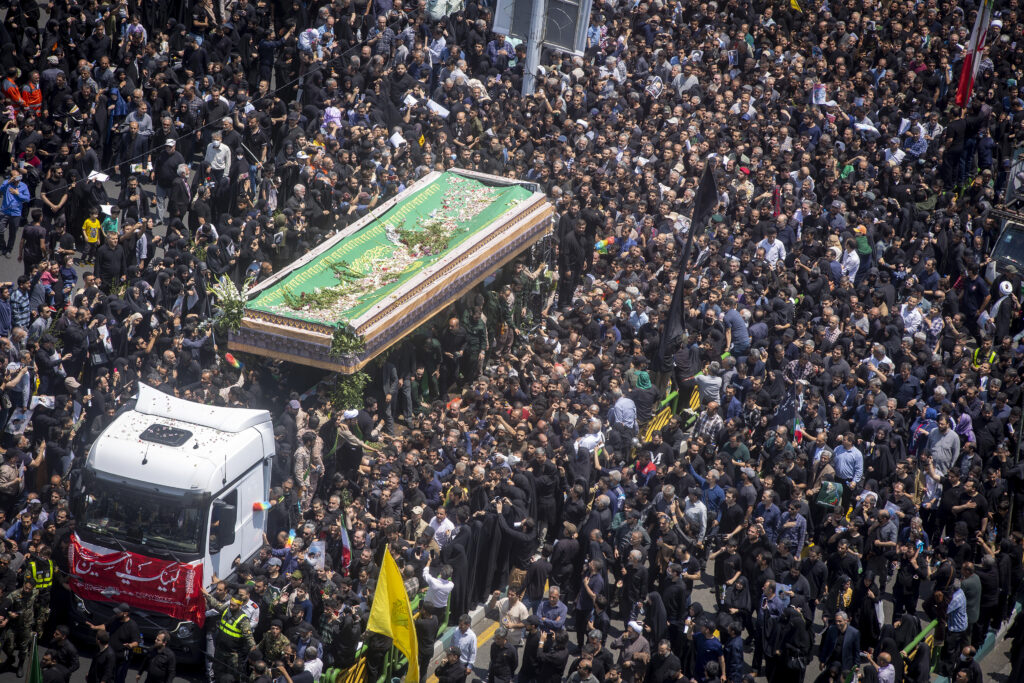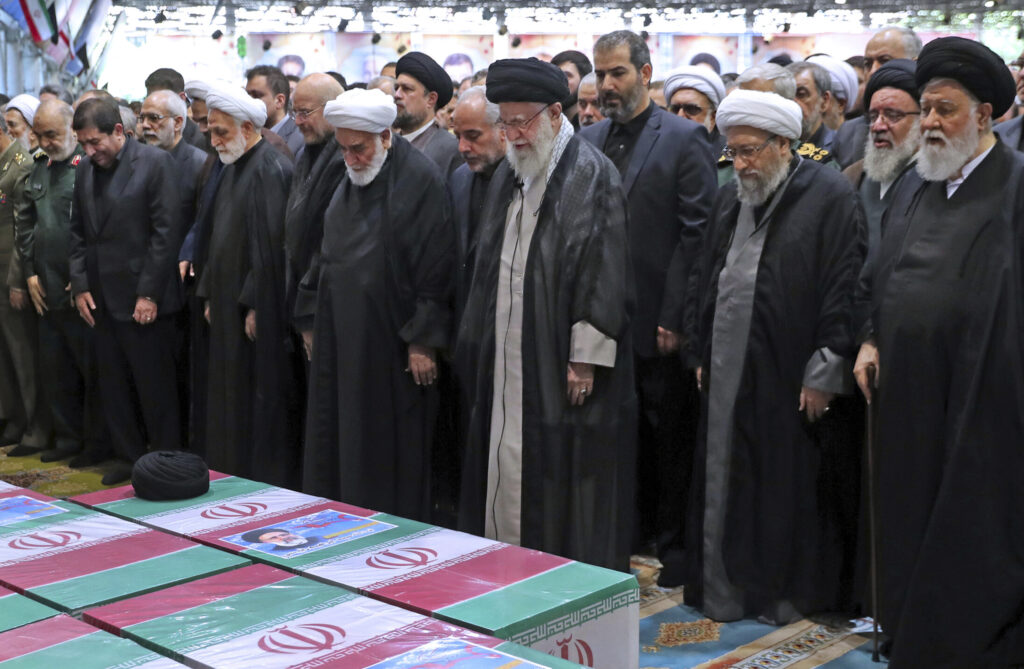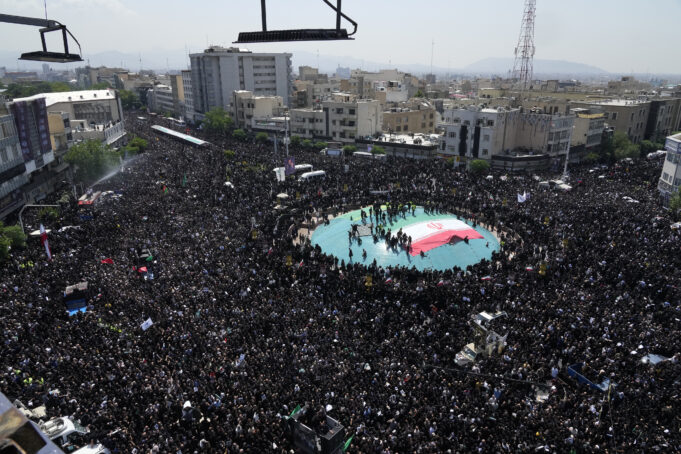The country of Iran lost revered leaders with the deaths of its president and foreign minister in a horrific helicopter crash. Tens of thousands of mourners attended the funeral for President Ayatullah Seyyed Ebrahim Rais al-Sadati, Foreign Minister Hossein Amir-Abdollahian, and other officials who died in a helicopter crash. Condolences were expressed from all over the world.
“Our deepest sympathies to the families, friends, and loved ones for the loss of such valued servants of the Islamic Revolution. As Muslims, your pain is our pain as well,” said the Honorable Minister Louis Farrakhan, National Representative of the Most Honorable Elijah Muhammad and the Nation of Islam.
Minister Farrakhan issued a statement on behalf of himself, the Nation of Islam Shura Executive Council, his family, and the Nation of Islam. He expressed heartfelt condolences to Ayatullah Seyyed Ali Hosseini Khamenei, Supreme Leader of the Islamic Revolution and the people of Iran. [See letter]
President Ebrahim Rais, along with Iran’s Foreign Minister Hossein Amir-Abdollahian and others, died in the crash in the northwestern province of East Azerbaijan on May 19.
Other leaders and heads of state also issued statements reported Al Jazeera.

“We express our solidarity with the brotherly Iranian people and the officials of the Islamic Republic during this painful tragedy,” said Iraq’s Prime Minister Shia al-Sudani.
Jordan’s King Abdullah issued a statement on X, formerly Twitter, posting his, “deepest condolences to the brothers, leadership, government and people of the Islamic Republic of Iran on the death of Brother President Ebrahim Raisi, Foreign Minister Brother Hossein Amir Abdullahian and those accompanying them.”
He added, “May God have mercy on them all. We stand in solidarity with our brothers in Iran in this difficult circumstance.”
And, Prime Minister Anwar Ibrahim of Malaysia stated, “His dedication to justice, peace, and the upliftment of the ummah [the Islamic community] was truly inspiring. We committed ourselves to bolstering Malaysia-Iran relations, working together for the betterment of our peoples and the Muslim world. Our pledge will be fulfilled.”
A state funeral was held May 23 in President Rais’ hometown, Mashhad, located in the Khorasan Razavi Province of Iran. There were five days of National Mourning called by Supreme Leader Ayatullah Seyyed Ali Hosseini Khamenei.
World leaders, presidents, ambassadors and international personalities as well as leaders of the resistance groups, including Ismail Haniyeh, head of the political bureau of Hamas, and Sheikh Naim Qassem, deputy secretary general of Lebanon’s Hezbollah movement, attended the ceremony.
Mourning ceremonies were held nationwide by the Iranian people, who were shocked and saddened at the loss of their popular president and foreign minister. The leaders and those who perished in the crash were lauded as martyrs. The others killed included Seyyed Mohammad Ali Al-e Hashem, the Friday Prayers leader of the city of Tabriz, the East Azerbaijan Governor Malek Rahmati, as well as security personnel and the copter crew.

The delegation was en route to the city of Tabriz in northwest Iran, returning from a dam opening ceremony on the Azerbaijan border when the aircraft crashed amidst heavy fog. According to Iranian media reports, Red Cresent rescue teams painstakingly searched for the crash site, hindered by difficult mountain terrain and inclement weather. The Red Cresent did a ground search after their emergency helicopters could not navigate the thick fog. The search took more than 12 hours to locate the chopper and the occupants’ remains.
Maintaining continuity of government, Vice-President Mohammad Mokhber was named interim president, in line with the Iranian Constitution. Elections to replace Mr. Rais, who was in his third year of a four-year term, are scheduled for June 28. To fill the void at the Foreign Ministry, Mr. Mokhber appointed Iran’s Deputy Foreign Minister for Political Affairs, Ali Bagheri Kahi, as head of the international committee and caretaker foreign minister.
Press TV, the Iranian News Agency reported on May 26 that Interior Minister Ahmad Vahidi issued a decree on May 26 ordering governors of provinces and cities across Iran to set up election executive committees in their regions within the next three days.
“The decree also ordered authorities to launch other programs mentioned in a timetable that had been earlier announced for the elections. Early presidential elections are required under Article 131 of Iran’s Constitution which stipulates that a new president should be elected by public votes within a maximum of 50 days from the day when a president dies or is incapacitated,” reported PressTV.ir.
Final Call staff contributed to this report.













